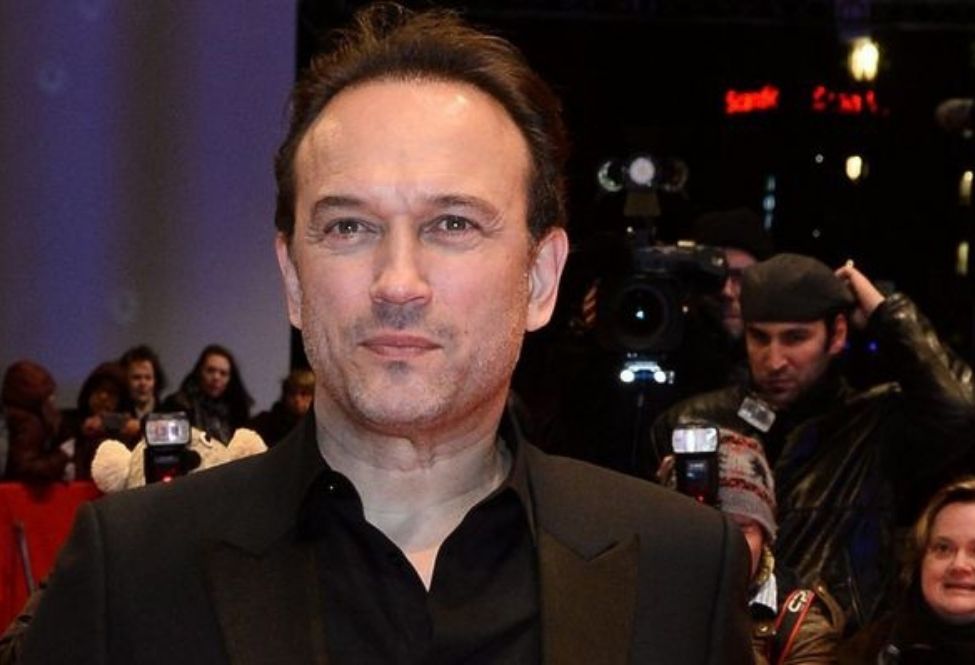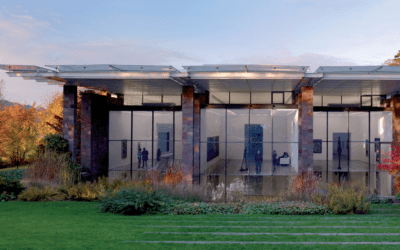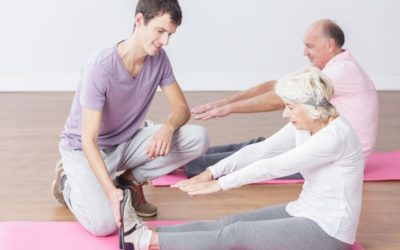Vincent Pérez is one of the most known Swiss actors. He has spent his first 18 years in the French-speaking part of the country. Some of his more known movies are “Cyrano de Bergerac”, “Indochine”, “La Reine Margot”, and many more. He has started out working for a photographer, doing a lot of lab work and little studio work. Once he entered adulthood, he turned his focus to the theatre, after which he moved onto films. The rest is, of course, history. He has made his mark on the industry worldwide!
If you want to learn more, keep reading the article by Martine Bernier.
Vincent Pérez is one of the best-known Swiss actors. “Indochine”, “Cyrano de Bergerac”, “Le Bossu”, “Fanfan la Tulipe”, “La Reine Margot”, “Un prince presque charmant”… his filmography is impressive and his reputation as a theatre actor and director is well established. At 52, although he has lived in Paris for a long time with his wife, the actress-director and writer Karin Silla, and their three children, he does not deny his origins and remains a warm and simple man. You left Romandie a long time ago.
Do you feel more French than Swiss?
No. I really have this Swissness in me. I was born in Switzerland, and having lived the first 18 years of my life in the French-speaking part of the country, I would say that it marks a man. I’m enjoying coming back more and more. I am currently working on an important project that will take place in Switzerland, which I cannot talk about yet. There is a real desire in me to return to my country more often.
Have you kept your ties there?
Yes, essential. You have to pay attention to them and take care of them because they are the foundations of an individual and I attach a lot of importance to them. I have a German mother and a Spanish father. My mother still lives in Switzerland and my father is in Spain. Part of me is a citizen of the world. I adapt wherever I go, I am open, not completely formatted by one culture. Today, I have become aware that the soil in which you are born and grow up, bypassing the crucial stage of childhood, marks you forever. I did not become a French citizen, I have a Swiss passport. The question arose, but I am very attached to my Swiss nationality. My wife is French (the actress and director Karin Silla) and our three children have dual nationality.
You came to Crans-Montana a few days ago, agreeing to speak at a public school. What links do you have with the Régent Collège?
I discovered some wonderful people who created this international school in the Valais and who asked me a little over a year ago to become its patron. After talking to them at length, I agreed to follow this school and to take part in meetings like the one that has just taken place. The film Fanfan la Tulipe was shown to the Junior pupils, who are between 5 and 13 years old, and the next day I answered their questions.
It was very good to be confronted with children’s questions and reactions. At lunchtime, I had to practically eat at all the tables at the same time because they all wanted me to sit with them! I really enjoyed this experience. Another building for the Senior School is going to open in September, which is absolutely beautiful, and I was lucky enough to visit it as it was being finished. I am part of a foundation that has just been set up within the school to enable poorer students to access scholarships and this education. You also support them in a musical project that will take place in September… Yes. The juniors are currently working on a musical about Charlie and the Chocolate Factory. I’ve been helping the teachers and students a little bit with the characters, the staging, and the acting. It was very interesting. I feel like I can communicate a passion, this artistic fiber that is important to me. I’m not necessarily the best teacher, but it’s good to get back to the basics… You began your own studies by studying photography at the Ecole supérieure d’arts appliqués in Vevey.
What made you want to branch out into film?
I did my studies as an apprentice. During the week I worked for a photographer who made me do a lot of lab work and a little studio work. I was a little hand, I learned how to develop, to reveal images in trays. At school, what I learned was much more technical, which was less for me. But I met some fascinating people there and, during those years, I began to enter adulthood. This is the age when you ask yourself what you want to do with your life. I started my career in the theatre and then moved on to film. I like telling stories, playing characters. Photography is a bit like that, you tell stories, you witness moments, it’s the art of looking.
When you told your parents that you were going to go into film, how did they take the news?
It was a disaster. Except for my mum, who had always dreamed a bit about cinema. She had secretly dreamed of doing it and encouraged me without ever expressing it. But for my father, it was very difficult. He didn’t know what to do with this news. It was with the help of my mentor and friend, my second father, Pierre Gosling, that the situation was resolved. I always say of him that he saved my life. As a teenager, I won a drawing competition. He was on the jury and he offered me to take part in his drawing and painting classes that were filmed for television. I took part in Un regard s’arrête and Les Aiguillages du rêve. He was our art master. I have absolutely wonderful memories with him, he changed my life. He was the one who put a camera in my hands for the first time. I took my first portrait there, a portrait of him. He told me not long ago that one day my father went to see him, desperate because I had decided to become an actor. Dad said to him, “So… what do we do?” As if he was talking to the other father. It was a very generous intention on his part. Pierre replied: “If he has it in him, you have to let him move on…”. I went to the Geneva Conservatory, then to the National Conservatory of Dramatic Art in Paris, and finally to the school of Patrice Chereaux, a great theatre genius. I worked a lot and I was lucky. Everything went very quickly.
What attracts you to a role?
I’ve just come from a theatre experience where I played Les Liaisons Dangereuses all over France and in Paris, and it was a huge success. What I like most is to be able to include the gesture and the physical, the thought and the body, the animal and the reason. I like to be able to move, to slide, to fall, to get up, to run, to link paradoxes, contradictions, luminous and dark characters, to infuse them with humor, if I am not caught in the trap of drama… I like the difficulty. When it’s too simple, I’m not very good! I like obstacles, difficulties.
Reaching fifty is experienced as a boon by some actors and as a problem for others. And in your case?
I am more concerned with what I want to do with my life, I ask myself fewer questions about what I should play, but more about who I am. Directing is an important part of my life, as is the desire to produce, photography… As an actor, in cinema, I have returned to a certain rigor in my choices. I am very busy with the latest film I have just directed. Alone in Berlin (original title: Alone in Berlin) will be released first in Germany, then in England, in France, then in Switzerland at the end of November and all over the world. I adapted it into English from a novel by Hans Fallada. You don’t have a German mother without a lot of questions coming up about history, my origins, etc. This film… is about my ancestors who communicate through me. With it, I am myself in the cinema.
Is it difficult to be Vincent Pérez knowing that when you have a certain notoriety, people’s behaviour changes?
I think it’s especially difficult to be an individual… I feel close to everyone, not different at all. I am on the same level as you, the teacher, the baker or the politician. We just have different jobs. Mine is visible, I’m more often in the newspapers or on TV than the newspaper seller, but deep down I really feel like everyone else. I just want to achieve something in my life, to leave a mark. It’s stronger than anything else, and I hope I can do it. I have a little less time left than before, but I still have time. So I don’t despair! What would you like to be remembered for in the future? I would like to be remembered as a father, a husband, a son, a friend, a man of my word. Perhaps simply a witness, a witness of my time.
You are currently working on a book of Russian portraits. What is your connection with Russia?
I have been going to Russia for 25 years. Russians like me, my films have all been shown there, I have a lot of affection for the country, its people, its history, its culture, its literature, and its cinema. It was authors like Chekhov and the book The Training of the Actor by Constantin Stanislavski that led me to the acting profession. It happened between the Lausanne and Moudon stations… As I was passing Charlie Chaplin’s house on the train, I imagined his life there, above Vevey. The link with Russia started there.
What kind of portraits do you focus on?
Small jobs, ordinary people… This is a big challenge for me. It’s my first book, and I’m going to do it with Olivier Rolin, who is an author and a Russophile. We are going to travel to the opposite poles of Russia. We’re going to go to Finland and then up to the plateaus near Mongolia via the Crimea… The book will be published by Delpire in 2017. But these photos will probably be shown in February, March, and April at the Maison Européenne de la Photographie, in Paris, where I will be exhibited. It’s very prestigious and… I’m starting to get cold sweats because I’ll really have to be at the top of my game as a photographer. At the same time, I am preparing my next film as a director… And I have another very nice project in Switzerland, which is very close to my heart… but it is still a bit too early to talk about!










